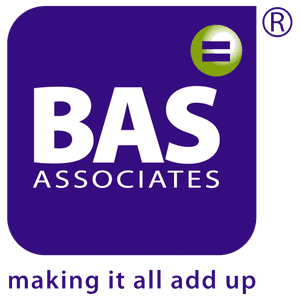Written by Brett Smith, Director & Accountant at BAS.
Isn’t Budget Day super exciting? For personal reasons, I had to work from home for a few hours on the day of the spring budget update. So, whilst working and eating my lunch I received panicked texts from friends asking about the reform to Child Benefit. Plus messages asking about the changes to VAT, which made me realise . . . I’d completely forgotten it was budget day!
Now what interests me about the comments from friends is that it made me realise, HMRC’s press releases are headlines only. Very little information in there for people to actually understand how the changes impact them. Not a shock I suppose, but a lot of the important headlines need clarifying, and that is what we aim to do with our spring budget update. In this update we’re aiming to give you more than just the headlines – we’ve written some supporting comments and details behind the update (where this has been made available by HMRC).
In the Spring Budget, HMRC advised that inflation has significantly dropped, with positive forecasts for GDP growth in the coming years. The VAT threshold will increase, supporting businesses alongside the renamed Growth Guarantee Scheme. Personal finance sees notable changes with a revamped Child Benefit system and National Insurance cuts, aimed at aiding families and individuals financially. Additionally, new investment opportunities arise with a UK-focused ISA, alongside adjustments in tax allowances to encourage financial prudence and investment.
Economy
With inflation rates plummeting and GDP growth projections soaring, there’s a lot to consider in terms of the nation’s financial trajectory. However, three key aspects have been considered as part of the budget:
- Inflation has more than halved, falling from its peak of 11.1% to 4.0%. The OBR forecasts inflation to fall to its 2% target in Q2 2024, a year earlier than in their November 2023 forecast
- Growth has been stronger than expected at the start of 2023. GDP is forecast to grow in every year of the OBR’s forecast with it being 0.8% this year, 1.9% in 2025 and then 2% in 2026, 1.8% in 2027 and 1.7% in 2028
- Debt is forecast to fall as a proportion of GDP in the medium term
Which is all fantastic to know, but ultimately what changes has the government come up with and what do they mean?
Business
From adjustments to VAT thresholds to extensions of loan schemes, the spring budget holds significant implications for businesses of all sizes. Here are three key areas that were discussed in the budget announcement:
VAT Registration Threshold
From April 2024 the VAT registration threshold will increase from £85,000 to £90,000. What this actually means is that today the threshold is £85,000 so if you meet either of the two tests for VAT-registration then the magic number is £85,000, but as of 1st April 2024 the magic number for either test will increase to £90,000. Also worth noting that the de-registration threshold will increase from £83,000 to £88,000.
Now there is an argument to be had that £5,000 isn’t really enough. The reason this increase was applied was to encourage growth – many businesses slightly under the current £85,000 avoid increasing their turnover to avoid breaching the threshold. Is a £5,000 increase really enough to encourage those businesses to grow? Maybe. Maybe not. But I suppose you have to stop somewhere.
Other business-related measures HMRC have introduced are:
- The Recovery Loan Scheme will be extended for two years, under the new name Growth Guarantee Scheme
- The Full Expensing Capital Allowance announced in the Autumn is to be made permanent with plans to extend it to lease assets – this doesn’t actually affect many small businesses as we already do this (when tax-efficient) through Annual Investment Allowances which HMRC have provided for several years
Personal
As individuals, the Spring Budget update holds the promise of both challenges and opportunities. With reforms to child benefits, adjustments to National Insurance rates, and changes to tax allowances, there’s much to consider in terms of personal finance.
Child Benefit
HMRC plan to reform the Child Benefit regime by moving it to a household-based system from 2026 rather than its current individual-based system. In theory this makes perfect sense – it shouldn’t be that a two-parent household, each earning £45,000 receives full child benefit, whilst a single-parent household earning £60,000 would receive nothing. However, in practice, how is this going to work with an individual-based tax system? Are we going to be declaring the income of those we share a house with moving forwards? If one parent is in self-assessment, and the other is not, how does that work?
The immediate change to the system announced during the budget was the increase from £50,000 to £60,000 when child benefit starts to be reclaimed, with the top rate of £60,000 at which it is repaid entirely increasing to £80,000. Given this rate hasn’t changed since Child Benefit was introduced back in January 2013, it’s about time.
National Insurance
From 6th April 2024, those in employment will see their NI rate fall from 10% to 8%, and those self-employed will see it fall from 8% to 6%. Now it doesn’t seem like much, but a tax deduction (and NI is essentially a tax) is still a tax deduction.
Also, employers and owners of owner-managed limited companies have also seen a decrease of . . . no wait, absolutely nothing. In fact, over the last few years those owner-managed companies have seen tax on dividends rise from 7.5% to 8.75% whilst those more “profitable” businesses have seen Corporation Tax rates rise from 19% to 25%. It’s also interesting to note that HMRC failed to give much help to owner-managed limited companies through Covid-19 whilst many of those in employment and self-employment received quite the opposite.
There was also a rumour of an income tax deduction, but this was not forthcoming. A cut in income tax rates would have also benefited those on a pension and those receiving income from rental property as well as those receiving some other income streams who don’t pay any NI, and therefore receive no benefit from this cut. Interesting to piece these items together and see who the current government would like to help the most.
Rental Property
With the aim of bringing more properties to the market, the higher rate Capital Gains Tax for residential properties will be reduced from to 28% to 24% with the lower rate remaining at 18%. In addition, the furnished holiday letting tax regime is being abolished from April 2025 to help make the system fairer between short-term and long-term lets.
Further Changes
- The chancellor announced the introduction of a new UK ISA, with its own £5,000 tax-free allowance in addition to current ISA allowances available when invested into UK-focused assets.
- The current tax system for those who are resident in the UK but not domiciled (Non-Dom) is being abolished. A new residence-based system will be introduced in April 2025 – we currently have no clients that this would affect, but if you know anyone that this may impact, we would welcome a conversation with them
- The tax-free dividend allowance will be reduced down from £1,000 to £500 from April 2024 and the Capital Gains Annual Exemption will also reduce from £6,000 to £3,000 from April 2024. Both of these have been confirmed for some time and were not changed at this latest budget
At BAS Associates Ltd, we believe that staying informed is key to financial success. As the implications of the Spring Budget update become clearer, we’re here to offer support and guidance to help you make informed decisions. You can read the full HMRC spring budget update here.
Want to know more about how we can support you and your business?
Contact us today to schedule a consultation and discover how BAS Associates Ltd can help you achieve your financial goals.






